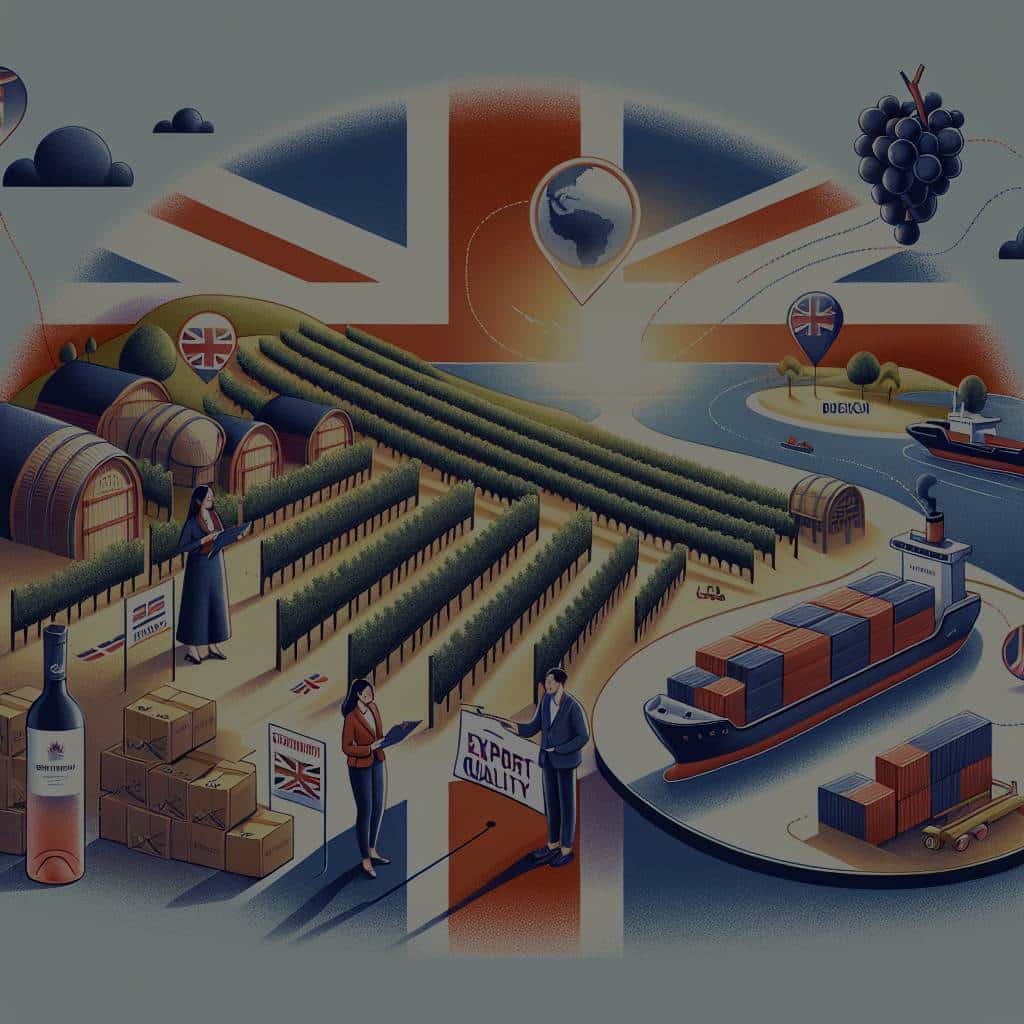What Are the Effective Strategies for Small UK Wine Producers to Export Globally?

As the wine industry evolves, so too do the strategies that businesses use to navigate a demanding global market. For small UK wine producers, it’s no longer just about the art of winemaking. They also need to understand and leverage innovation, economic trends, and market dynamics. But what does it take to make a splash in the global wine trade? How can small wine firms compete with their larger counterparts? Let’s delve into the effective strategies that small UK wine producers can employ to become a force to be reckoned with in the international wine market.
Understanding the Global Wine Market
Before a producer can begin to strategize, they first need to understand the market they are competing in. In today’s digital age, this means using research tools at their disposal, such as Google Scholar, to study the global wine industry, production trends, and consumer behaviour.
Additional reading : Build with a concrete dock builder for optimal stability
Google Scholar offers a vast library of scholarly articles, conference papers, theses, books, and patents, a number of which are available for free. Using the DOI (Digital Object Identifier), you can access in-depth research on specific topics relating to the wine industry. This can help small UK wine producers gain a rich understanding of the global market and consumer preferences.
Various studies on global wine consumption show a shift in consumer preferences towards wines that are not only high-quality but also sustainably produced. With the UK being a leading country in sustainable wine production, small UK wine producers are well-positioned to cater to this growing demand.
In the same genre : What Are the Best Social Media Practices for UK Pet Supply Brands?
Embracing Innovation and Technology
Innovation is a key driver in any industry, and the wine sector is no exception. From vineyard to cellar to market, technology can be a game-changer for small producers looking to make their mark globally.
The application of technology in the wine production process can increase efficiency and enhance the quality of the wine. For instance, precision viticulture technologies, such as satellite imagery and drone technology, can help producers monitor vine health and yield, manage pests and diseases, and optimize irrigation and fertilization.
Innovation also extends to the marketing and selling of wines. Digital platforms can help producers reach a wider audience and offer a more personalized experience to consumers. Social media marketing, virtual wine tastings, and e-commerce platforms are just some of the ways that small UK wine producers can leverage technology to expand their global reach.
Developing a Unique Selling Proposition
In a crowded global wine market, having a unique selling proposition (USP) can set a small producer apart. This could be anything from the unique taste profile of their wines, the sustainability of their production methods, to the rich history and heritage of their vineyards.
For example, English sparkling wine has been gaining recognition for its high quality, often compared to the renowned Champagne. By promoting the unique characteristics and superior quality of their sparkling wines, small UK producers can attract both domestic and international consumers.
Building Strategic Partnerships
Partnerships can open doors to new markets and opportunities. Small UK wine producers can consider partnering with distributors, retailers, and even other wine producers to gain a foothold in global markets.
Collaboration can also take the form of co-branding or creating a joint product. This not only helps to share resources and costs but also to combine strengths and reach a wider audience.
Understanding and Adapting to Trade Policies and Regulations
International trade is governed by a complex web of policies and regulations. For small UK wine producers looking to export globally, understanding these rules is crucial.
Changes in trade policies can have a significant impact on the wine industry. For instance, Brexit has led to changes in the UK’s trade relationships with other countries, affecting the export and import of goods, including wine.
Producers also need to be aware of country-specific regulations regarding alcohol content, labeling, and packaging, and ensure their products comply with these rules. Failing to do so can lead to fines, confiscation of products, or even a ban on exporting to a particular country.
In the competitive world of the global wine trade, it’s not enough to simply produce a good bottle of wine. Small UK wine producers need to understand the market, embrace innovation, develop a unique selling proposition, build strategic partnerships, and navigate trade regulations to successfully export globally.
Capitalising on Market Niches and Consumer Trends
To effectively penetrate the global wine market, small UK wine producers need to identify and capitalise on market niches and evolving consumer trends. This involves a deep understanding of the wine market and potential consumer preferences in different regions.
Researchers in wine economics suggest that consumers are increasingly seeking unique and authentic wine experiences. The growing demand for English wine and British wine represents a significant opportunity for small UK producers. High-quality sparkling wine, in particular, is a niche UK producers should focus on, given their burgeoning reputation in this space.
Moreover, the global wine market is also witnessing a shift in consumption patterns due to climate change and growing awareness about sustainability. Consumers are increasingly favouring wines produced using environmentally friendly methods. As a result, small UK wine producers should consider incorporating sustainable practices into their production processes and marketing these aspects effectively.
Moreover, the wine business is also seeing an increase in the demand for low-alcohol or non-alcoholic wines, as well as wines made from alternative fruit varieties. Producers who can innovate and cater to these trends could find lucrative market niches both domestically and internationally.
Managing Exchange Rate Risk and Free Trade
One of the challenges in international trade is the risk associated with fluctuating exchange rates. Changes in the exchange rate between the British Pound and the currency of the importing country can impact the competitiveness of UK wines abroad.
Small UK wine producers should therefore consider innovative strategies to mitigate exchange rate risk. These might include forward contracts, which allow producers to lock in a future exchange rate, or options contracts, which provide the right to exchange currency at a given rate without the obligation to do so.
Furthermore, understanding and leveraging free trade agreements can significantly influence a small producer’s success in exporting globally. Free trade agreements can reduce or eliminate tariffs, making UK wines more competitive in certain markets. The recent UK-Australia free trade agreement, for example, presents a significant opportunity for small UK wine producers to enter the Australian wine market.
The German wine market also represents a significant opportunity, particularly given the historical and cultural ties between the UK and Germany. The German wine market is diverse and open to new and innovative wines, making it a good fit for small UK producers looking to export globally.
Conclusion
In the complex and competitive realm of the global wine market, small UK wine producers need to employ a multi-faceted approach to achieve success. Understanding and leveraging innovation, economic trends, and market dynamics are crucial elements of this approach.
By capitalising on market niches, embracing sustainable practices, managing exchange rate risks, leveraging free trade agreements, and adapting to evolving consumer trends, small UK wine producers can effectively compete on the international stage.
The growing demand for English wine and British wine abroad, particularly high-quality sparkling wine, combined with the UK’s strong sustainability credentials, place small producers in a favourable position to seize these global opportunities.
With dedication, innovation, and strategic partnerships, small UK wine producers can not only survive but also thrive in the global wine sector, contributing to the UK’s reputation as a leading wine-producing region.
